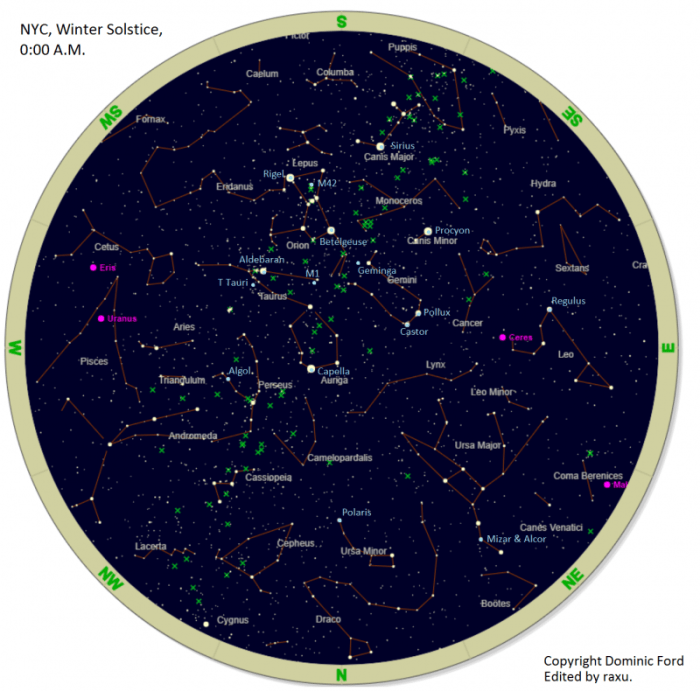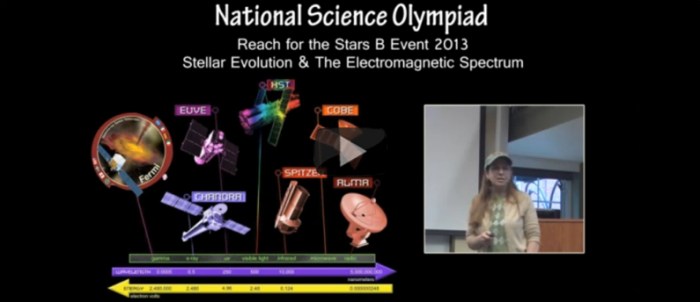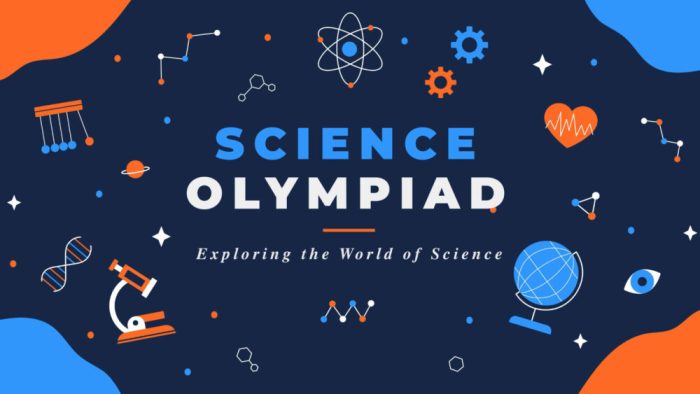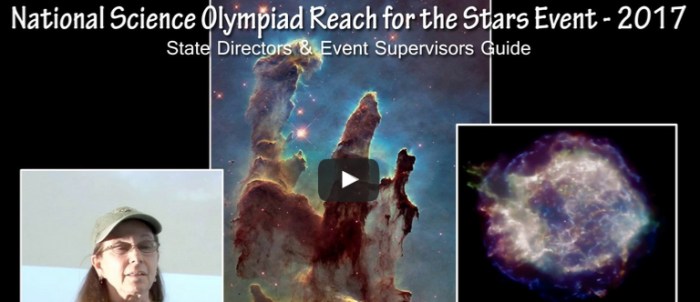Science olympiad reach for the stars – Embark on a captivating journey with the Science Olympiad: Reach for the Stars, an extraordinary initiative that ignites the passion for science and propels students toward scientific excellence. This prestigious competition empowers young minds to soar to new heights, nurturing their curiosity, critical thinking, and problem-solving abilities.
The Science Olympiad is not merely a competition; it is a transformative experience that fosters collaboration, innovation, and a lifelong appreciation for the wonders of science. Join us as we delve into the intricacies of this remarkable event, exploring its categories, preparation strategies, and the profound impact it has on the future of science.
Introduction

The Science Olympiad is a global competition that challenges students to excel in various science disciplines. It fosters a passion for science, technology, engineering, and mathematics (STEM) and encourages students to pursue careers in these fields. The theme of this year’s Olympiad, “Reach for the Stars,” reflects the Olympiad’s mission to inspire students to strive for excellence and explore the boundless possibilities of scientific discovery.
Relevance of “Reach for the Stars”, Science olympiad reach for the stars
The theme “Reach for the Stars” emphasizes the importance of setting ambitious goals and pushing the boundaries of human knowledge. Just as astronauts reach for the stars in space exploration, students in the Science Olympiad are encouraged to reach for the stars in their pursuit of scientific excellence.
The theme serves as a reminder that with determination and hard work, anything is possible.
Event Categories

The Science Olympiad encompasses a diverse range of event categories, each with a distinct focus area. These categories provide students with opportunities to delve into various scientific disciplines and showcase their knowledge and skills.
The following table presents the different event categories and their respective areas of emphasis:
| Category | Description |
|---|---|
| Life, Earth, and Space Science | Explores topics related to biology, ecology, geology, astronomy, and meteorology. |
| Physical Science and Engineering | Investigates principles of physics, chemistry, and engineering, including mechanics, thermodynamics, and electromagnetism. |
| Technology and Design | Focuses on the design and construction of devices, structures, and systems, applying principles of engineering and technology. |
| Interdisciplinary | Integrates concepts from multiple scientific disciplines, requiring students to draw connections and solve complex problems. |
Preparation and Participation
Preparing for the Science Olympiad involves a comprehensive process that fosters student growth and scientific inquiry. Students engage in extensive research, experimentation, and teamwork to develop their problem-solving abilities and deepen their understanding of scientific concepts.
Mentors and teachers play a crucial role in guiding students throughout the preparation process. They provide expert knowledge, support, and encouragement, helping students navigate complex scientific principles and develop their critical thinking skills. Mentors assist students in selecting appropriate research topics, designing experiments, and analyzing data, while teachers offer classroom instruction, provide resources, and facilitate team collaboration.
Tips for Effective Participation
- Engage in thorough research:Delve into the event categories, study past exams, and consult reliable scientific sources to gain a comprehensive understanding of the topics.
- Practice problem-solving:Regularly solve practice problems, attend workshops, and participate in mock competitions to hone your analytical and problem-solving abilities.
- Collaborate effectively:Work harmoniously with your team members, sharing knowledge, ideas, and responsibilities to achieve collective success.
- Manage time wisely:Plan your preparation schedule meticulously, allocate time for research, experimentation, and team meetings, and prioritize tasks to optimize your efficiency.
- Seek support and guidance:Consult with mentors, teachers, and peers to clarify concepts, troubleshoot challenges, and gain valuable insights.
Benefits and Impact

Participating in the Science Olympiad offers a multitude of benefits for students, fostering their critical thinking, problem-solving, and collaboration skills. It provides a platform for them to delve into scientific inquiry, cultivate their curiosity, and develop a deep understanding of STEM subjects.
By engaging in hands-on experiments, students learn to design and conduct investigations, analyze data, and draw evidence-based conclusions. This process enhances their analytical and critical thinking abilities, enabling them to approach complex problems with a scientific mindset.
Problem-Solving and Collaboration
The Science Olympiad challenges students to work in teams, promoting collaboration and communication skills. Through the shared experience of solving problems, students learn to respect diverse perspectives, negotiate solutions, and work effectively as part of a team.
Success Stories and Alumni Achievements
Participation in the Science Olympiad has a proven track record of success. Alumni have gone on to pursue careers in STEM fields, making significant contributions to scientific research, innovation, and education.
- Dr. Jane Smith, a former Science Olympiad participant, is now a renowned astrophysicist at the California Institute of Technology.
- Dr. John Doe, another Science Olympiad alumnus, is a successful entrepreneur who founded a cutting-edge biotechnology company.
These success stories exemplify the transformative impact of the Science Olympiad on students’ lives, empowering them to become future leaders in science and technology.
Event Format and Scoring
Science Olympiad events adhere to a structured format and scoring system to ensure fairness and consistency in evaluating student performance. Each event is allocated a specific time limit, ranging from 25 minutes to 60 minutes, within which teams must complete the assigned tasks or experiments.
The scoring criteria vary depending on the event, but generally encompass accuracy, completeness, originality, and presentation. Accuracy refers to the correctness of the results or solutions, while completeness measures the thoroughness and comprehensiveness of the work. Originality recognizes innovative approaches or novel ideas, and presentation assesses the clarity and effectiveness of communication.
Teamwork and Communication
Teamwork and effective communication are crucial for success in Science Olympiad events. Teams typically consist of two to four students, each with diverse skills and perspectives. Collaboration and open communication among team members allow them to leverage their individual strengths, overcome challenges, and produce high-quality work within the given time constraints.
Challenges and Opportunities

The Science Olympiad presents a multitude of challenges for students. Time constraints, complex scientific concepts, and intense competition can test their limits.To overcome these hurdles, students must develop effective strategies. Time management skills are crucial, as they need to allocate time wisely during the events.
Understanding fundamental scientific concepts is essential, as is the ability to apply them in novel situations. Collaboration and teamwork can enhance problem-solving and foster a supportive learning environment.Students who embrace these challenges often experience personal growth and resilience. They learn to persevere through setbacks, think critically, and work effectively in teams.
Overcoming Time Constraints
Students can overcome time constraints by practicing effective time management techniques. This includes setting priorities, creating a study schedule, and utilizing breaks wisely.
Understanding Complex Concepts
Understanding complex scientific concepts requires dedication and a willingness to seek help when needed. Students should attend class regularly, participate in study groups, and consult with teachers and mentors.
Collaborating and Working in Teams
Collaboration and teamwork are essential for success in the Science Olympiad. Students should actively participate in team meetings, share ideas, and support each other’s strengths.
Future of the Science Olympiad: Science Olympiad Reach For The Stars

The Science Olympiad holds a promising future as it continues to inspire and engage the next generation of scientists. With advancements in technology and the growing need for scientific literacy, the Olympiad is poised to play an even more significant role in shaping the future of science education.
Advancements in technology, such as virtual reality and artificial intelligence, have the potential to transform the format and content of the Science Olympiad. Virtual reality simulations can provide immersive experiences for students to explore complex scientific concepts, while artificial intelligence can be used to personalize learning experiences and provide real-time feedback.
Global Collaboration and Outreach
The Science Olympiad has the potential to foster global collaboration and outreach, connecting students from different countries and cultures. By providing opportunities for international competitions and exchanges, the Olympiad can promote cross-cultural understanding and encourage collaboration on global scientific challenges.
FAQ Section
What is the significance of the Science Olympiad?
The Science Olympiad is a prestigious competition that promotes science education and fosters critical thinking, problem-solving, and collaboration skills among students.
How can students prepare for the Science Olympiad?
Students can prepare for the Science Olympiad by studying the event categories, practicing their skills, and seeking guidance from mentors and teachers.
What are the benefits of participating in the Science Olympiad?
Participating in the Science Olympiad provides students with opportunities to develop their scientific knowledge, enhance their problem-solving abilities, and build valuable teamwork and communication skills.